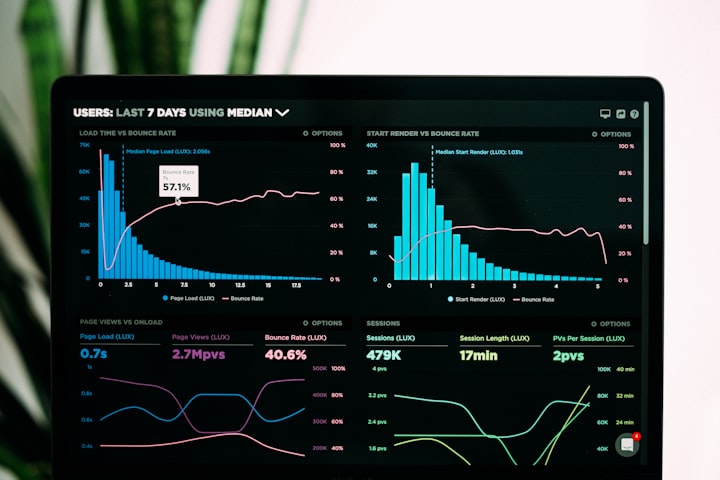The Power of Big Data: How It is Used to Drive Business Insights and Innovation
Let's discuss the power of Big data

In recent years, big data has emerged as a powerful tool for businesses looking to gain insights into their operations and customers. "Big data" refers to the large volume of data—both structured and unstructured—that is generated by businesses, individuals, and devices. By analysing this data, companies can gain valuable insights that can be used to drive business innovation and growth.
One of the key benefits of big data is its ability to help companies identify trends and patterns in customer behavior. With the help of sophisticated analytics tools, companies can analyse large datasets to uncover insights into customer preferences and buying habits. For example, a retailer may use big data to analyse customer purchasing patterns and preferences, such as which products are selling well, which products are being returned, and which products are most frequently searched for on the company's website. Armed with this information, the retailer can optimise its inventory, pricing, and marketing strategies to better serve its customers.
Big data can also be used to optimise business operations. For example, a manufacturer may use data from sensors on its production line to identify patterns of inefficiency or equipment breakdowns. With this information, the manufacturer can take steps to improve its production processes, reduce downtime, and increase overall efficiency.
In addition to improving operations and customer service, big data can also be used to drive business innovation. By analysing large datasets, companies can identify new business opportunities, develop new products and services, and even disrupt entire industries. For example, the rise of ride-sharing services like Uber and Lyft was made possible by the analysis of large amounts of data about customer demand, traffic patterns, and driver availability.
To effectively leverage big data, companies need to have the right infrastructure in place. This includes hardware and software tools for collecting, storing, and analysing data, as well as skilled data analysts and data scientists who can make sense of the data and extract insights that can be used to drive business growth. In addition, companies need to be able to access and share data across different departments and functions in order to fully realise the potential of big data.
Despite the many benefits of big data, there are also challenges associated with its use. For example, companies need to be careful to protect the privacy and security of the data they collect, and they need to ensure that they are complying with relevant regulations and standards. In addition, companies need to be aware of the potential biases and limitations of the data they collect and take steps to mitigate these issues in order to ensure that their insights are accurate and reliable.
While big data has many benefits, there are also some significant cons to consider, including:
Security and privacy concerns:
With more data being collected and stored, the risk of data breaches and privacy violations increases. Companies must ensure they have strong security protocols in place to protect sensitive data.
Data quality issues:
Large amounts of data can be difficult to manage, leading to inaccuracies and inconsistencies in the data. Companies must have effective data management and quality control processes in place to ensure that the data they collect is accurate and reliable.
Cost and complexity:
Managing and analysing large amounts of data can be expensive and time-consuming. Companies must invest in the necessary technology and skilled personnel to handle the data effectively.
Bias and discrimination:
Big data can perpetuate existing biases and discrimination, especially if the data is not diverse or representative. Companies must take steps to ensure that their data is unbiased and that their algorithms do not discriminate against certain groups.
Legal and ethical concerns
Big data can raise legal and ethical concerns, such as who owns the data, how it can be used, and who is responsible for ensuring that it is used responsibly. Companies must comply with applicable laws and regulations and ensure that they are using the data in an ethical and responsible manner.
In conclusion, big data has the power to transform businesses by providing insights that can be used to drive innovation, optimise operations, and improve customer service. To effectively leverage big data, companies need to have the right infrastructure and talent in place, and they need to be aware of the challenges associated with its use. With the right approach, big data can be a powerful tool for driving business growth and innovation in the years to come.






Comments
There are no comments for this story
Be the first to respond and start the conversation.